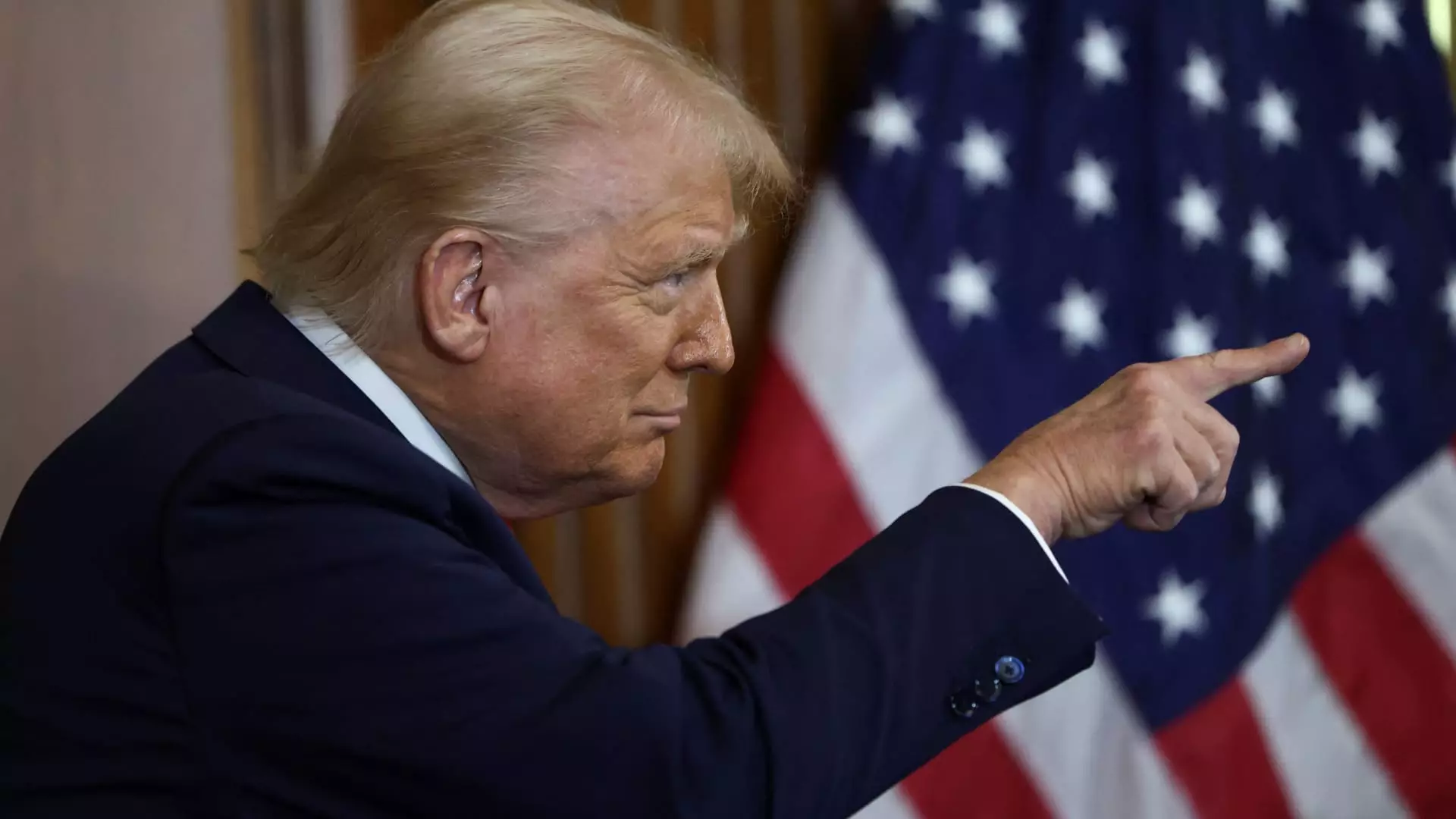As the political landscape continues to shift, Donald Trump’s recent pivot towards a potential tax increase for the nation’s wealthiest individuals is both shocking and revealing. While many might expect a former president and leading figure within the Republican Party to advocate for further tax breaks for the rich, Trump is suggesting the opposite. He has proposed returning the top federal income tax rate from the 2017 level of 37% back to a whopping 39.6%, marking a significant change in rhetoric within a party historically resistant to any form of taxation, especially on high earners. This proposal emerges amid significant disagreement among Republicans, who appear divided on the plan.
Trump’s New Strategy: A Gamble for the Working Class
Trump has publicly expressed that he would “graciously accept” a tax hike on those earning over $2.5 million annually if it translates into benefits for lower and middle-income Americans. It’s an eye-catching statement from a leader who has long been characterized by his staunch defense of wealth and corporate interests. Is this a genuine attempt to address the concerns of average citizens, or does it serve as a strategic maneuver? Trump’s acknowledgment of the tax increase’s potential to fund vital programs like Medicaid hints at a complicated motive—one where he can reclaim a narrative of caring for the “forgotten Americans” while simultaneously positioning himself as a pragmatist willing to make tough choices.
Repercussions of the Tax Cuts and Jobs Act
The Tax Cuts and Jobs Act (TCJA) of 2017, which Trump himself championed, significantly reduced tax rates for corporations and the wealthy, raising concerns over its long-term impact on income inequality and the national deficit. Now, as we edge closer to 2025, the looming expiration of these cuts presents the perfect backdrop for Trump’s new tax idea. One can argue that the TCJA was an exercise in favoring the elite, and this recent proposal may signify a reckoning—a recognition that the policies of the past have not yielded the economic equality that proponents advertised.
However, it is essential to consider how this pivot may be perceived within the GOP. Trump’s overtures to increase tax rates on the affluent could alienate a significant faction within his party. For a political coalition that thrives on low-tax mantras, this could easily be interpreted as betrayal, particularly among the wealthy contributors who have historically funded Republican campaigns.
The Carried Interest Loophole: A Targeted Move
Trump’s intention to close the carried interest loophole—a finance industry quirk that allows investment managers to pay lower tax rates on their earnings—is no small talk. This is a significant concession to a segment of the GOP that recognizes the damaging impression this loophole has on public perception of economic fairness. Although it remains uncertain how much traction this angle will gain, it may reflect an emerging willingness to confront established privileges within the economic strata.
Still, skepticism abounds. Critics of even the prospect of tax increases argue that such actions could risk stymying economic growth. Yale Budget Lab president, Natasha Sarin, has characterized the fiscal mathematics of the proposed multi-trillion-dollar spending bill as fundamentally flawed, emphasizing a dangerous gap between what the government wishes to spend and the expected revenue increases.
A Divided Party Faced with Economic Reality
The reality facing Republicans is that serious internal discord looms over how to reconcile a budget that accommodates both tax reductions for wealthy individuals and funding for essential services. With the possibility of using expedited legislative methods to pass these measures, the calculations become even more complex. Is Trump’s willingness to entertain a tax increase, albeit selectively, evidence of an evolving party platform? Or does it signify disarray among ranks that could have deeper ramifications for the GOP in the upcoming elections?
With both skepticism and innovative impulses at play, Trump’s aspirations for higher taxes on the rich raise critical questions about the future of fiscal policy in America. Ultimately, the interplay between public obligations and economic incentives will define the scope and success of his proposed changes, pushing us into uncharted political waters.

